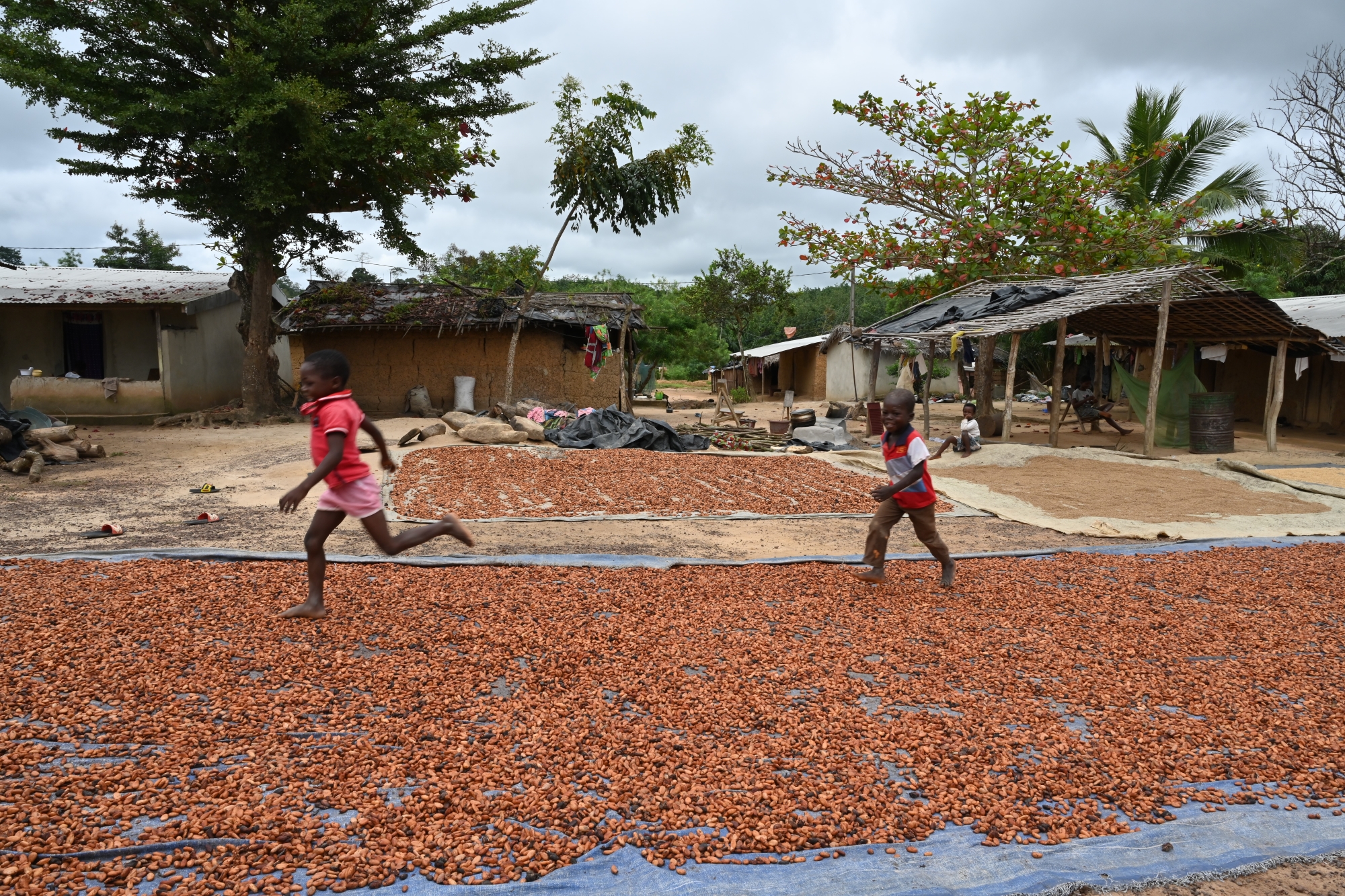Cocoa production in Côte d’Ivoire
Côte d’Ivoire stands as the world’s foremost producer and exporter of cocoa, making cocoa production the bedrock of its economy and supplying nearly 40% of the world’s cocoa. The country’s economic landscape is significantly influenced by the cultivation and export of cocoa beans, which contributes almost 15% of Côte d’Ivoire’s GDP, and accounts for 40% of the country’s exports. Cocoa provides employment and income for millions of Ivorians across the country. The cocoa production also has a huge impact on the biodiversity. In the last 30 years, Côte d’Ivoire has lost 90 percent of its rainforest. Cocoa from Côte d’Ivoire today mostly comes from areas that were rainforest.
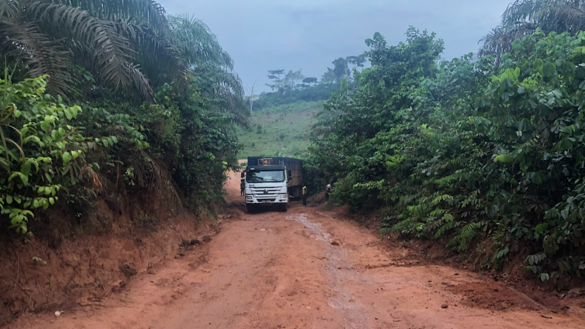
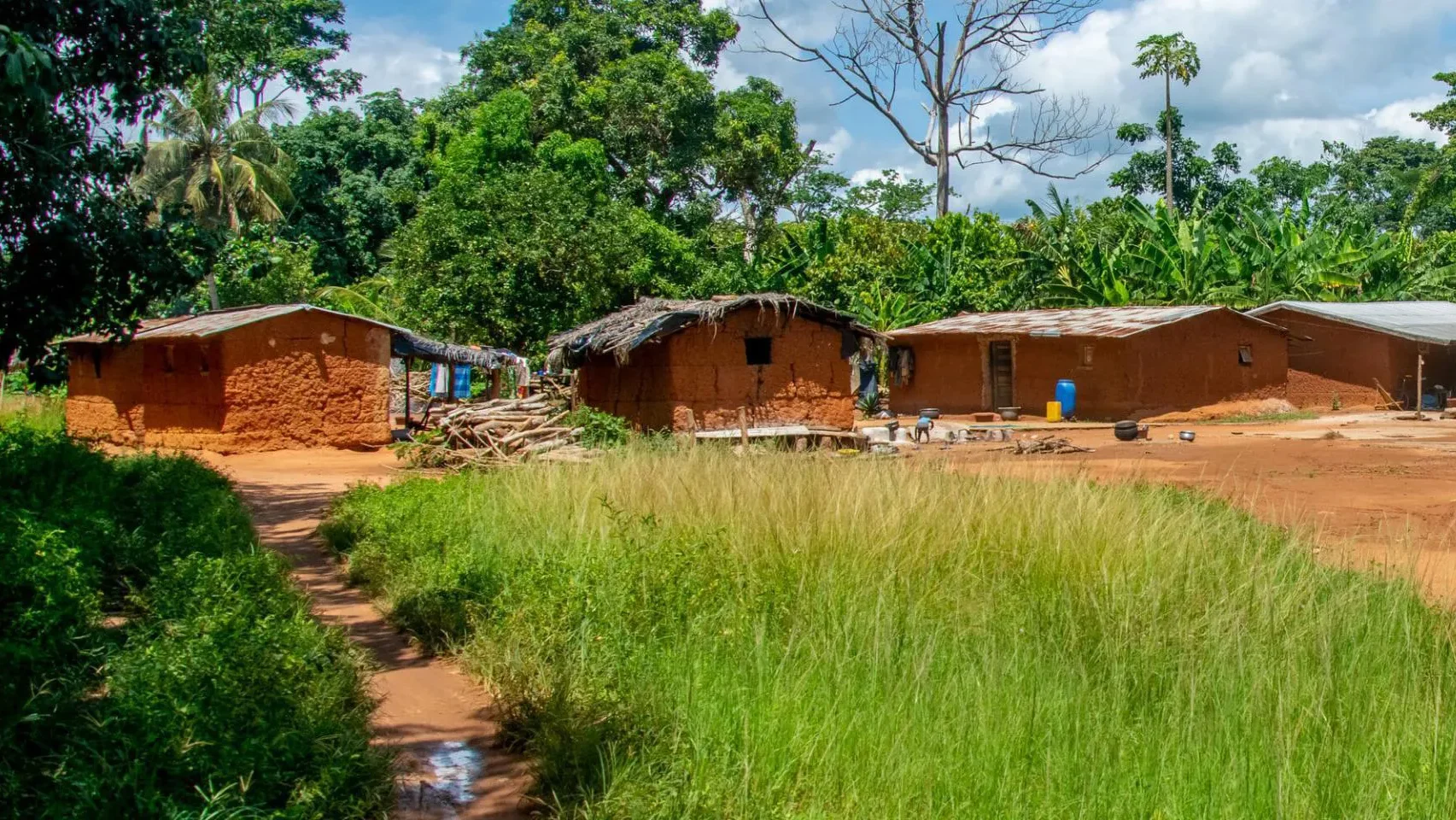
Nawa and its departments, the heart of cocoa production in Côte d’Ivoire
The Soubré department, nestled in the Nawa region of western Côte d’Ivoire, is one of the largest cocoa farming areas of Côte d’Ivoire, alongside coffee, rubber and palm oil. The region’s favourable climate and fertile soil make it an ideal environment for cultivating cocoa trees. Most of the cocoa production in this area is done by smallholder farmers in villages, many of which are far from towns and villages, connected only by dirt roads through rough forest terrain. For these smallholder farmers, cocoa farming is their main source of income.
Complex supply chains and insufficient regulation
The cocoa supply chain is a typical hourglass shaped supply chain with a large farmer base, only a few exporters and processors, and millions of consumers. The few traders and processors have a large influence on cocoa prices and the sustainability of the industry. Paying cacao farmers a decent income that would cover their basic needs and prevent them from resorting to child labour remains a significant challenge.
Almost all of Côte d’Ivoire’s cocoa is exported for further refinement, primarily to Europe. Many of the world’s largest chocolatiers buy their cocoa beans on the Ivorian market, including Ferrero, Tony’s Chocolonely or Mondelez.
Cocoa farming is often labour-intensive and relies on hand labour with low financial rewards. Cocoa farmers have little bargaining power. Pricing is based on the global supply chain. Other challenges occurring the cocoa production and supply chain are: crop failures due to disease or pest infestation, falls in demand (like during Covid pandemic), or global effects of, for example, the war in Ukraine. Speculations on commodity exchanges (deliberate acts by market trades to make profits) also contribute to fluctuating cocoa prices. These unstable prices can have disastrous effects on smallholder farmers, like poverty and health issues.
The price that farmers receive for their cocoa has collapsed in recent years, from approximately 1100 XOF (€ 1.60) to 600 XOF (€ 0.91) per kilo, driving many farmers further into poverty. As prices and income decrease further, many farmers are forced to take loans to cover expenses, often using their cocoa farms as collateral. When they are unable to make payments on their loans, farmers risk losing their entire crop.
Another challenge is the slow integration by the Conseil du Café-Cacao of quality criteria for cacao production related to respecting business principles and child rights.
The complexities of the cocoa supply chain, coupled with economic challenges and insufficient regulatory frameworks and legislation, contribute to harsh livelihood conditions in this region.
Children at work
Many villages are proud of their efforts to reduce or even eliminate child labour. Yet despite these steps, many children remain at work in the cocoa, coffee and rubber farms. Farmers do arduous work in difficult conditions, while children are often tasked with – dangerous or harmful – tasks like cleaning plantations with machetes or carrying produce over long distances.
Many of the children in Soubré face a harsh reality, where the pursuit of a living wage by their parents often comes at the expense of their education, well-being, and their fundamental rights as children. The demand for cocoa in international markets has inadvertently fuelled exploitative practices, with children involved in various stages of cocoa cultivation from very early ages.
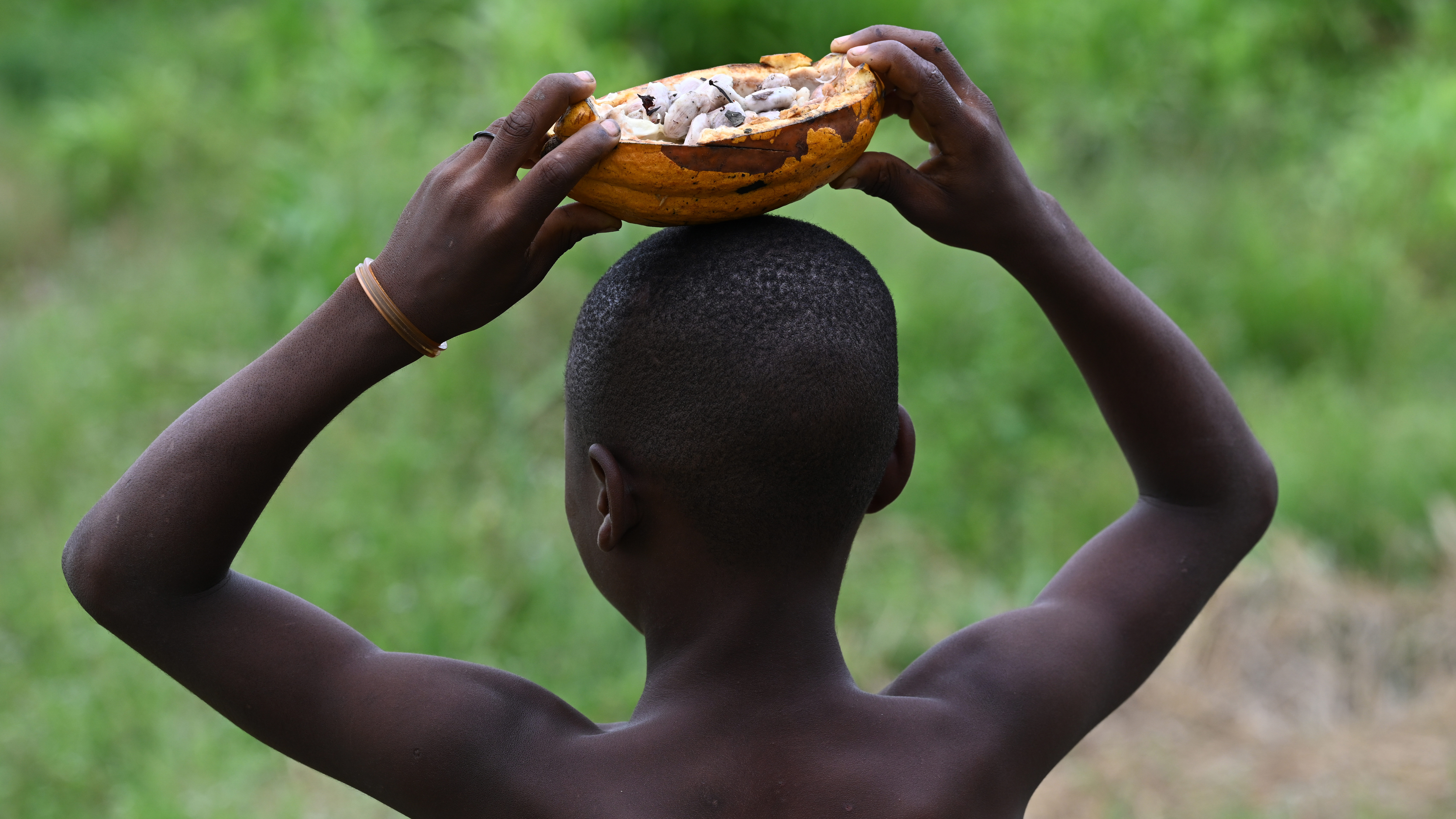
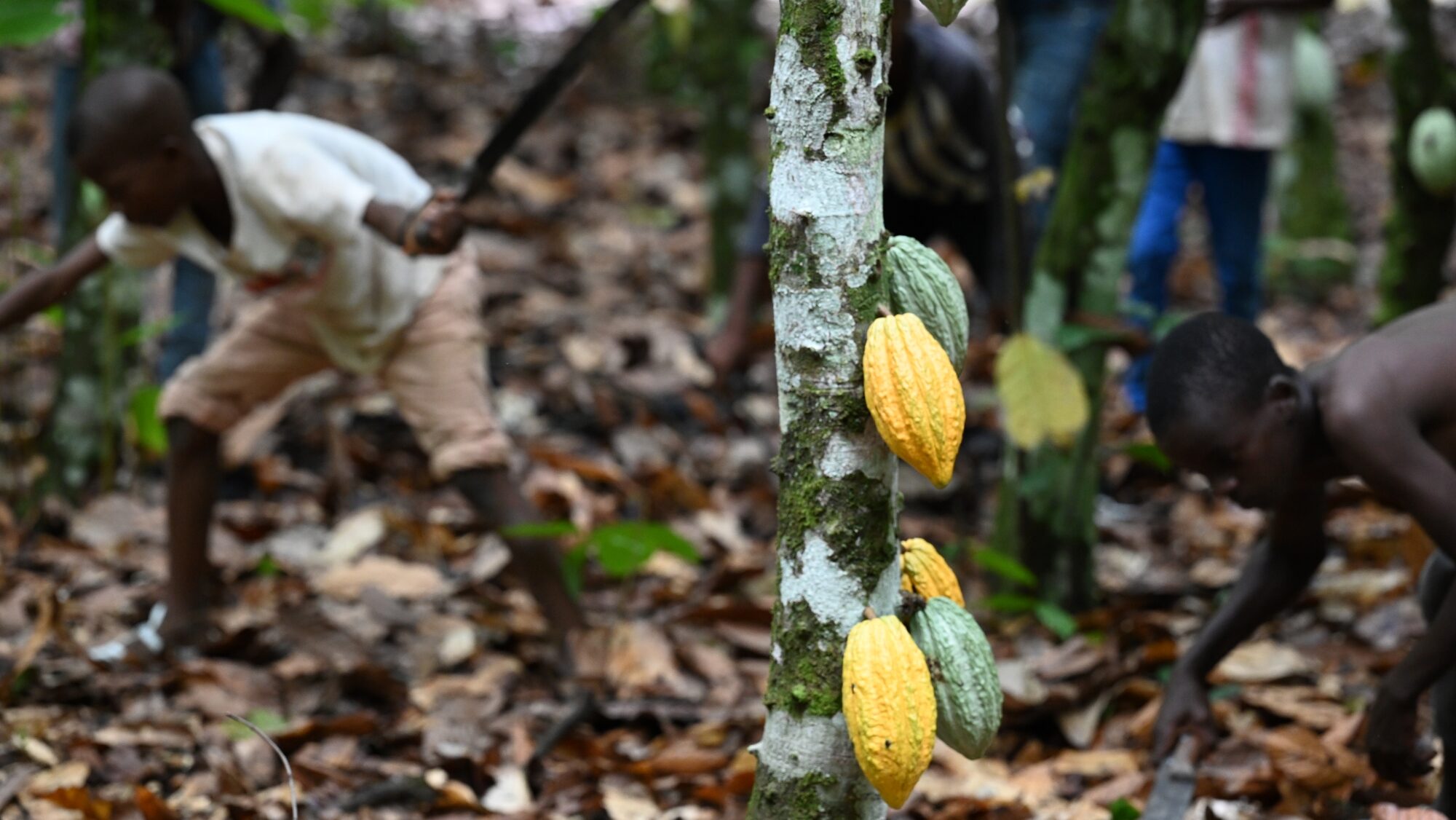
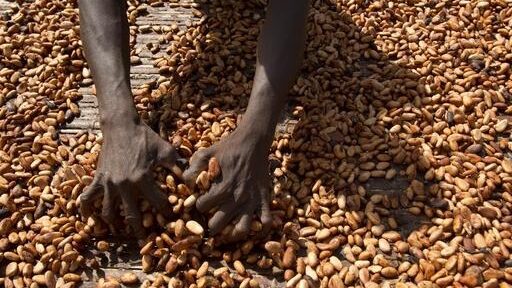
Despite legislation requiring all children to attend school until 15 years of age, many children in the Nawa don’t ever get the chance to attend school. Their parent’s lack of resources, the inaccessibility of schools, social norms or the necessity of additional hands or income means that they start working, often alongside their parents, farming cocoa and other crops.
Due to the lack of schools, parents are often unable to entrust their children to a dependable minder during the day. Parents then take their children along to the cocoa farms, something that is “tout à fait normale” – completely normal – according to Mr. Drissa Bamba, the General Secretary of DRENA Soubré, the Regional Directorate for National Education. Without viable alternatives, children start to work from an early age and lose out on opportunities for education. Even where children manage to attend school, dropout rates are high because of limited materials and a lack of opportunities for further education or alternative employment. Many children, after meeting the age requirement for school, simply return to agriculture.
In Côte d’Ivoire, there are complex, interwoven factors that drive child labour: poverty, lack of opportunities and access to formal, quality education, social norms and expectations, and weak formal structures. Where laws exist on paper, they are not always enforced, or enforced to the detriment of children, and fundamental rights are poorly understood or guaranteed.
WNCB partners in Côte d’Ivoire
Three partners are active in Côte d’Ivoire: UNICEF, Save the Children, SYNADEEPCI. They cooperate with ANADEE and DDE-CI. ANADEE provides technical support to cocoa farmers and works together with UNICEF in champs écoles across villages in the Nawa. DDE-CI (Dignité et Droit pour les Enfants de Côte d’Ivoire) leads WNCB’s work to address child labour in urban areas, particularly in domestic services in Abidjan.
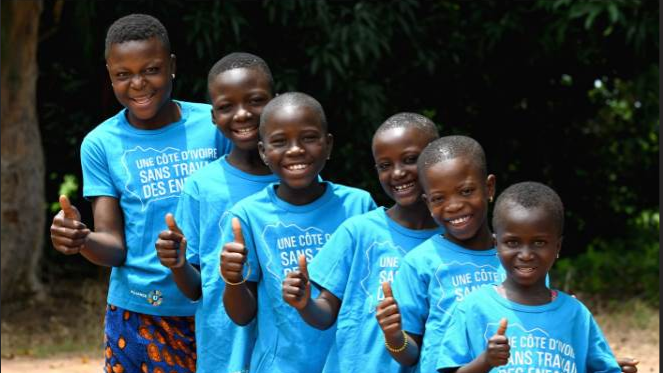
UNICEF
UNICEF focuses on national-level advocacy, strengthening child protection services. This support includes facilitating access to basic social services, providing learning opportunities, and economic empowerment of families.
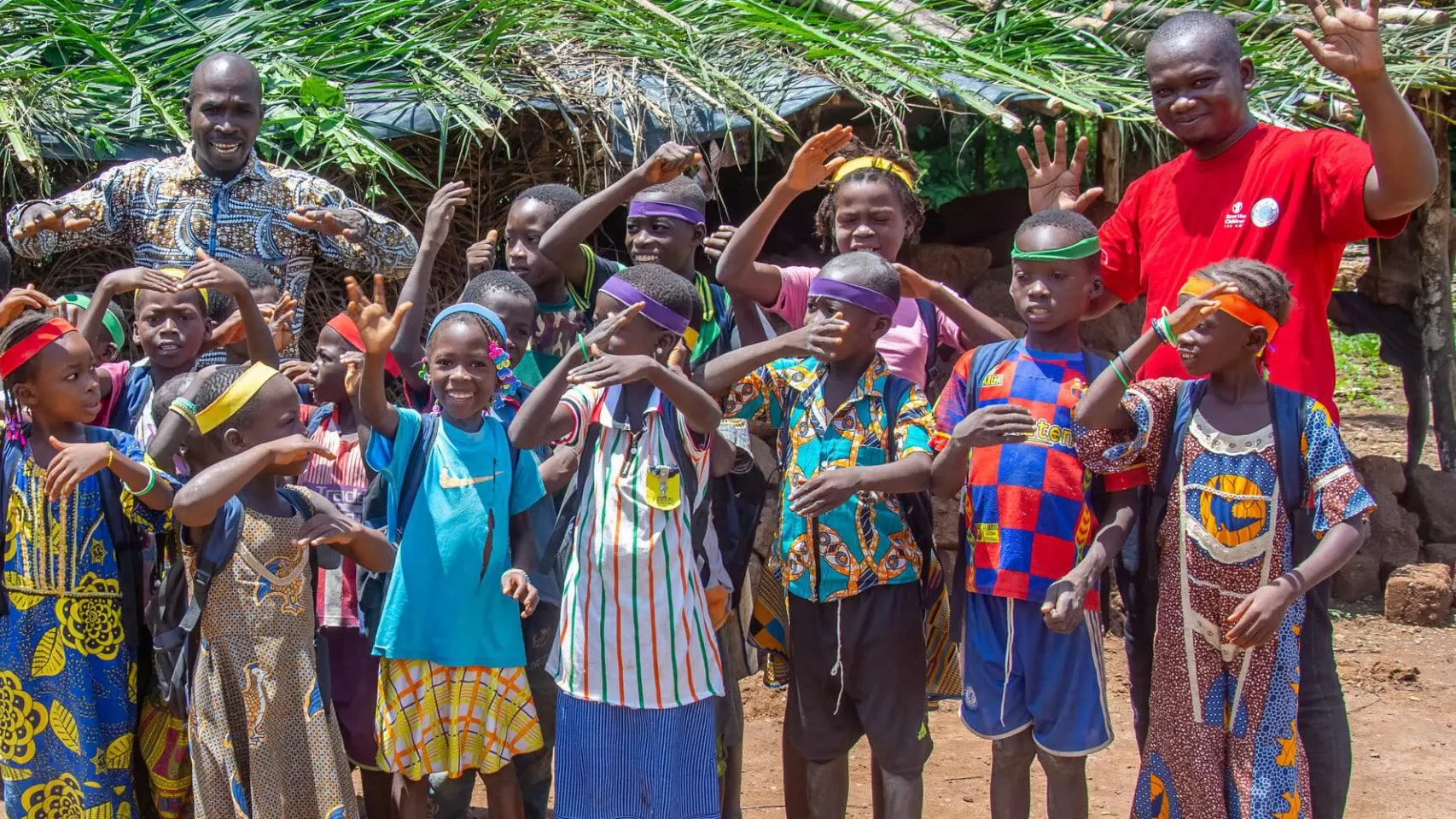
Save the Children
Save the Children sets up in bridge classes and community schools, engages in financial education for communities through AVEC (village saving and loan association) while ensuring that cocoa cooperatives adhere to principles governing child rights in business.
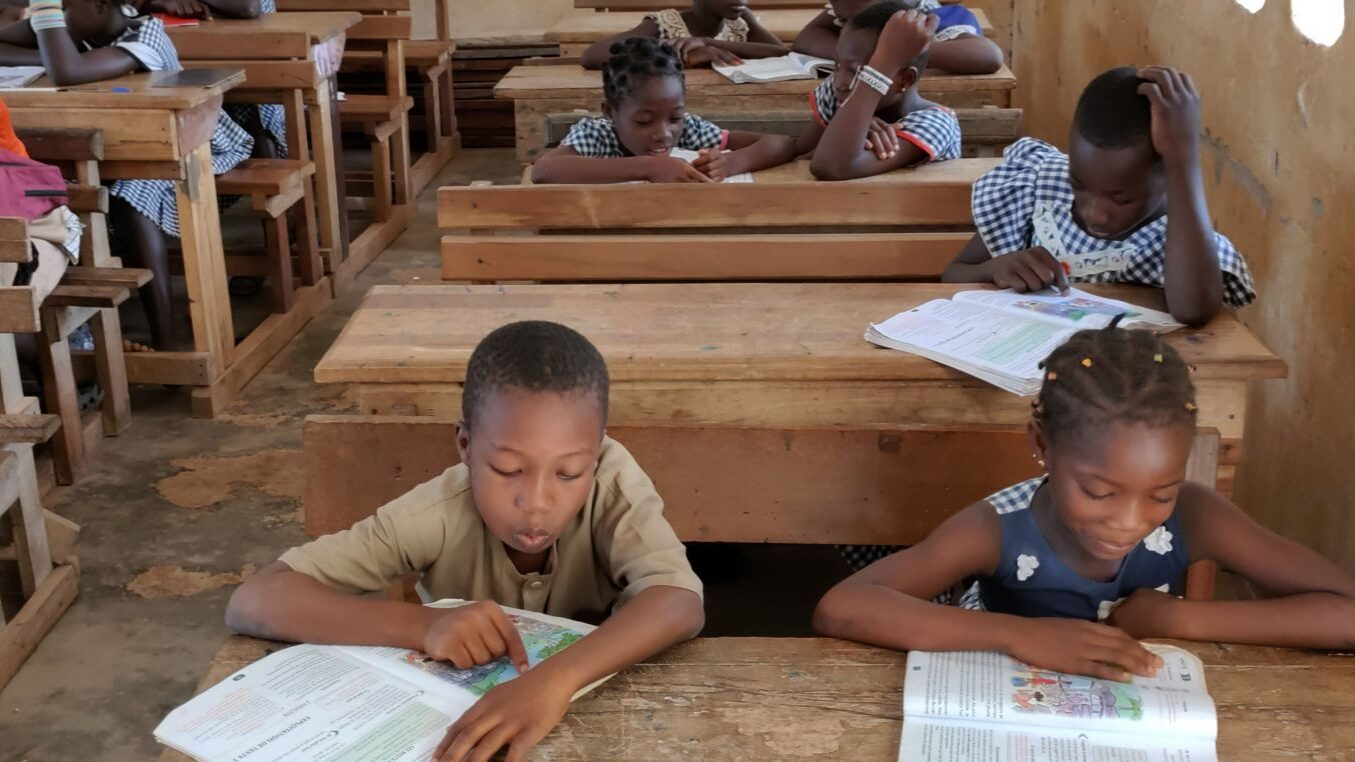
SYNADEEPCI
SYNADEEPCI (National Teachers Union of Côte d’Ivoire) supports education sector reform, working together with trade unions and social service providers and authorities across the country. SYNADEEPCI mobilises education stakeholders and trains teachers.



